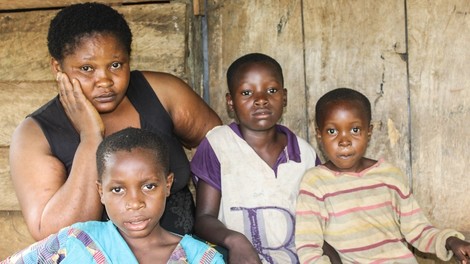Your podcast discovery platform
Curious minds select the most fascinating podcasts from around the world. Discover hand-piqd audio recommendations on your favorite topics.

piqer for: Climate and Environment Globalization and politics Health and Sanity
Mona Silavi is a human and women’s rights activist from the Ahwaz region in Iran. She obtained her bachelor in psychology and specialized in children and adolescence psychology at Damascus University, faculty of psychology and education. She holds a master degree in good governance and human rights in MENA region from Ca’ Foscari University in Venice. She started her activism in Damascus as member of Ahwazi Arab student association. Mona Silavi is a Project Officer at the Unrepresented Nations and Peoples Organization (UNPO) and is the coordinator for topics concerning freedom of religion and belief. She is also a spokesperson of the Al-Ahwaz Democratic Solidarity Party (DSPA). Since 2014 Ms Silavi lives in Belgium as a political refugee
Ambazonia Via Cameroon; Colonial Languages Divided a Nation
"Ambazonian people" is how the inhabitants of the south of Cameroon refer to themselves. The name “Ambazonia” is derived from the location of this territory in the Ambas Bay area within the Gulf of Guinea.
What divides this part of Cameroon from the rest of it is the English language, in contrast to the largely French-speaking Yaoundé-based Cameroun.
After the process of the decolonization, French continues to be the sole administrative language and the positions of power are dominated by Francophones on the federal level.
Many in the Anglophone community feel marginalised by the French-speaking government in Yaounde, citing a lack of political representation, job opportunities and resources and the imposition of French in schools, official documents and courts.
After years of assimilationist policies against Anglophones from Francophones, Ambazonia is currently at its worst crisis between government forces and Ambazonian civil society, with numerous disproportionate security measures of force.
Tensions rose in late 2016 with a strike by barristers and then teachers, both of whom were protesting against the use of French in schools and courts in Cameroon's English-speaking northwest and southwest regions.
A government crackdown forced some Ambazonians to flee to Nigeria for survival. There are currently 21,000 to 50,000 living in an aid center at the Agbokim Waterfalls, Nigeria.
In this article, the author gives a full historical and political background behind this crisis in this region, in addition to personal stories of Ambazonian refugees who become cheap labor in Nigeria. Refugees who, suffering from food scarcity, live in poor sanitary conditions and have little or no access to educational facilities.
It is interesting and tragic to witness how colonial languages can be a reason behind continued suffering in Africa. The heritage of colonization not only divided Africa based on colonial powers' interests, but its effects remain and push for more misery and instability.
